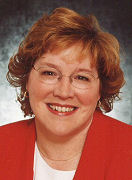Do you have a primary care provider (PCP)? I hope you do because if you wait until you get sick,you may not be able to find a doctor willing to take you on as a patient. Here are some reasons why it's getting more difficult to find a primary care provider.
Most insurers and other payers insist that PCPs be the gatekeepers to all our care. When we get sick, or experience difficult symptoms, we must see our primary first. They may refer us, but specialists won't accept self-referrals, so even if you know what is causing your symptoms you often won't be able to make a specialist appointment without the help of your PCP.
By itself, the gatekeeper concept doesn't make the establishment of a primary care relationship critical. What makes it so critical is that the number of patients needing a primary is growing exponentially while the number of possible primaries to choose is decreasing. When you need a PCP, you may not be able to find one. And if you need a specialist, you may not be able to see one unless you have a PCP.
How big is the shortage? In 2011, in the United States, we are short an estimated 17,000 primary care providers. That deficit is expected to grow to between 35,000 and 44,000 by 2025.
Here are some of the reasons:
An Aging Population
As the baby-boomer population ages, people who have been able to avoid the need for medical care for decades find their bodies breaking down as they get older. They may never have needed a doctor before – but they do now. Even those who have gone to a primary care doctor on rare occasions over the years are finding they have been dropped from a doctor's roster of patients. Once they get sick or experience symptoms, they find themselves scrambling for help.
Advances in Medical Science
Medical science has helped us live longer. Years ago, a man might have died of a heart attack at age 50. Today he will more likely survive that heart attack, and as he lives into his 80s with heart disease, he may develop diabetes or cancer, too. We may develop several, compounded medical problems as we age. Those problems are best coordinated by a primary care physician, requiring additional visits, and fuller primary care schedules.
Health Care Reform
Since 2010, more and more people have been able to access medical care because of the Affordable Care Act. In 2014, 32 million new people will be covered for care, but no more doctors will be readily available. Massachusetts, where universal health care became law several years ago, has been feeling this pinch already.
Reimbursements
Doctors are paid so little for their work with Medicaid patients, and depending on the problem, for some Medicare patients, too, and some are turning down those patients, refusing to see them because they don't believe they will be paid enough. From their points of view, they have 15 minutes to make money from a patient. They could make $50 from seeing a Medicare patient, or $30 from seeing a Medicaid patient, or $75 for working with a private insurance patient.
Some doctors, however, are reserving a percentage of their practices for these lower reimbursement patients. If your payer is a public program like Medicare, Medicaid, Tricare or another state-based payer, the earlier you establish a relationship with a primary care doctor, the better chance you will continue to have one available when you need one.
For these reasons and more – if you don’t have a primary care provider, find one today. Then make an appointment for a check-up even if you believe nothing is wrong with you. Get a physical, ask to get your cholesterol or blood sugar checked - anything that means you can establish a relationship so you'll have a doctor when you need one. Then visit that doctor at least annually to maintain the relationship.
Find yourself a primary care provider today. It’s a positive step toward your future health and care.
Sources:
Primary Care Shortages from Health and Human Services
Affordable Care Act (Healthcare Reform)
Reviewed July 29, 2011
by Michele Blacksberg R.N.
Edited by Shannon Koehle





Add a Comment1 Comments
I am not sure that health care reform will lead to a reduction in the availability of primary care doctors. Every other developed nation in the world has a national health care system. And even though those systems differ from each other widely, every other developed country has a greater percentage of primary care doctors than we do.
August 1, 2011 - 2:56pmThis Comment